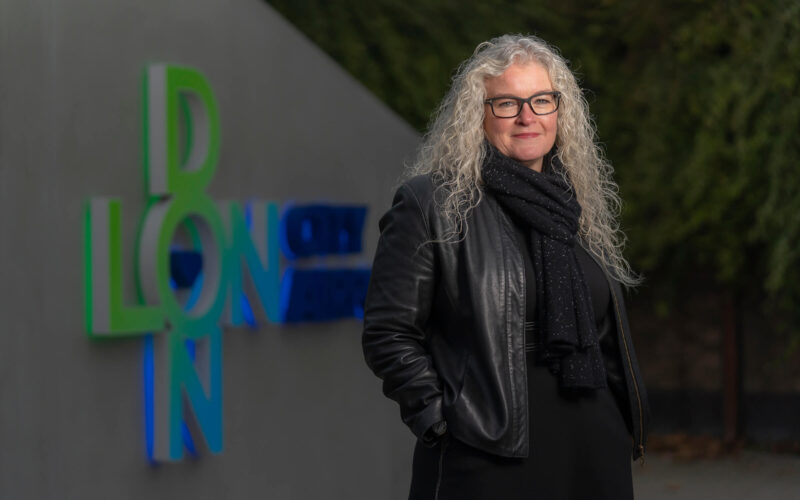Alison FitzGerald, the Chief Operating Officer at London City Airport, is drilled to expect the unexpected. But did that help when the Covid crisis struck? Read Alison’s story.
All Airport COO’s are drilled to expect the unexpected. Foolishly, I thought the most unexpected it could get at London City was having to close the airport for a day while we cleared an unexploded World War II bomb and dealing with hundreds of Extinction Rebellion protestors who were hell bent on forcing us to close (they didn’t manage to, by the way).
While these were seriously challenging events for me and my team, I can’t help but look back on them with a wistful nostalgia given what we are living through right now.
Perhaps the biggest challenge with COVID-19 has been the uncertainty it has caused. When the airport temporarily ceased commercial operations in late March, just after Lockdown 1 was implemented, I remember getting into my car with my office plant and wondering when it would be possible to get back to the airport and back to normal.
And while it has been possible to get back to airport, because of government regulations, it’s been more sporadic than I would want. As for getting back to normal, that is still just as unknown now as it was back then. Although judging by how happy our passengers were to travel when they could last summer, and the amount of holiday adverts on the TV, I still do hold out some hope for summer ’21.
Perhaps the most essential skill that I’ve needed through all of this is adaptability. For anyone who has flown through London City, you will know we are a small (but highly efficient) airport. And with a flurry of new policy and regulation coming at us at warp speed, we’ve had to really carefully consider each change in terms of not only passenger safety, but how quickly our passengers can still journey through the airport.
Make no mistake, the minute we become a slow, small airport is the moment I have to start looking for a new job!
But I’m pleased to say, we are still quick, and we are, in everything we do, utterly focussed on keeping our passengers and staff safe and secure. Though, it is fair to say, that this crisis has broadened my definition of airport safety. Now, we have hand sanitiser at every turn, temperature checks, social distancing technology, and microbial treatments and even our very own on-site testing centre.
2021 will be unpredictable (and it has been so far). And that makes planning really challenging. Particularly in an industry that thrives when there’s certainty. But what we can’t do is stand still. Its imperative to use this down time to keep our staff motivated, provide them with the skills they need and, crucially, listen to their ideas and make them invested in how the business bounces back.
And I really do believe that we will. Travel, whether for business or leisure, is hard wired into who we are. However, we need to recognise that the needs of our passengers will have changed.
The question that I’m wrestling with now is what kind of service do we want to offer in the post-COVID world. I do think the health-conscious passenger is here to stay. But there will be some trends that we don’t know about yet that we need to prepare for. That’s why we’ll be speaking with our customers regularly to help shape our future customer experience strategy.
Of course it’s a challenge, but we’re not in the realms of entirely reinventing the airport journey . When people return in numbers, we think they’ll want a hybrid experience, where they trust us with their safety but also trust us to make their travel simple and, crucially, quick.
And speaking as a former CIO, we need to get back to the business of making travel entirely digital. We were making great strides pre COVID when it came to biometrics and seamless travel.
But right now, the challenge is to harness technology to get you to your destination as easily and safely as possible. Let’s face it, even where travel is possible, passengers need to understand different entry requirements of different countries and what forms to fill in and when. And that just isn’t sustainable. What we need to do is to focus our energy on once again thinking like a passenger and streamlining processes in order to make travel easy, simple and affordable.
If governments and industry are ambitious, we can seize this opportunity to develop digital solutions and biometrics to create a seamless, frictionless and contactless process which is harmonised across our key markets. This would allow passengers to book a flight, upload their vaccination or test data, check-in and pass-through security and border processes confidently, securely, safely and with ease. A passenger’s smartphone could become their passport to the world and the future airport experience at London City could be even better than it ever was.
It’s a great challenge to have and will be critical in gaining our passengers confidence to travel again. We know there is pent up demand and the longer the lockdown measures continue the greater we think that demand will be. I am very much looking forward to seeing a terminal full of happy passengers and aircraft stands full of aircraft in the not-too-distant future – and jumping on a plane to sunnier climbs just as soon as I can!

